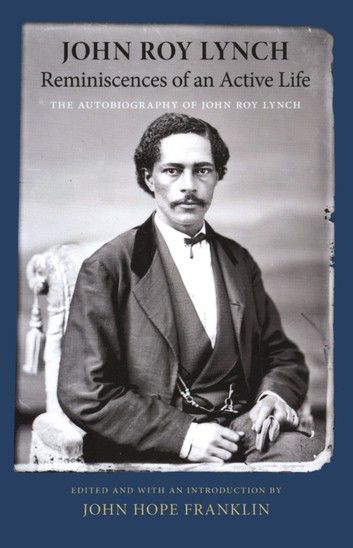| FindBook |
有 1 項符合
Reminiscences of an Active Life的圖書 |
 |
Reminiscences of an Active Life 作者:John Roy Lynch 出版社:University Press of Mississippi 出版日期:2008-10-07 語言:英文 |
| 圖書館借閱 |
| 國家圖書館 | 全國圖書書目資訊網 | 國立公共資訊圖書館 | 電子書服務平台 | MetaCat 跨館整合查詢 |
| 臺北市立圖書館 | 新北市立圖書館 | 基隆市公共圖書館 | 桃園市立圖書館 | 新竹縣公共圖書館 |
| 苗栗縣立圖書館 | 臺中市立圖書館 | 彰化縣公共圖書館 | 南投縣文化局 | 雲林縣公共圖書館 |
| 嘉義縣圖書館 | 臺南市立圖書館 | 高雄市立圖書館 | 屏東縣公共圖書館 | 宜蘭縣公共圖書館 |
| 花蓮縣文化局 | 臺東縣文化處 |
|
|
Born into slavery on a Louisiana plantation, John Roy Lynch (1847-1939) came to adulthood during the Reconstruction Era and lived a public-spirited life for over three decades. His political career began in 1869 with his appointment as justice of the peace. Within the year, he was elected to the Mississippi legislature and was later elected Speaker of the House. At age twenty-five, Lynch became the first African American from Mississippi to be elected to the United States Congress. He led the fight to secure passage of the Civil Rights Bill of 1875. In 1884, he was elected temporary chairman of the Eighth Republican National Convention and was the first black American to deliver the keynote address.
His autobiography, Reminiscences of an Active Life, reflects Lynch's thoughtful and nuanced understanding of the past and of his own experience. The book, written when he was ninety, challenges a number of traditional arguments about Reconstruction. In his experience, African Americans in the South competed on an equal basis with whites; the state governments were responsive to the needs of the people; and race was not always a decisive factor in the politics of Reconstruction.
The autobiography, which would not be published until 1970, provides rich material for the study of American politics and race relations during Reconstruction. It sheds light on presidential patronage, congressional deals, and personality conflicts among national political figures. Lynch's childhood reflections reveal new dimensions to our understanding of black experience during slavery and beyond. An introduction by John Hope Franklin puts Lynch's public and private lives in the context of his times and provides an overview of how Reminiscences of an Active Life came to be written.
|











